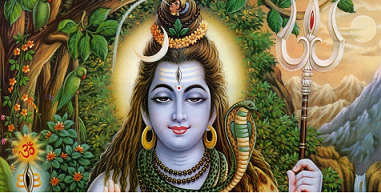As the gentle showers breathe new life into the earth, devotees of Hinduism anticipate the arrival of the holy month of Shraavan Maas. Revered as a sacred month in the Hindu calendar, Shraavan Maas holds profound significance for spiritual seekers across the globe. Let us embark on a spiritual journey to explore the essence and rituals associated with this auspicious month.
Shraavan Maas, falling between July and August, is an occasion to express reverence and devotion to Lord Shiva, the Adi Yogi (first yogi) and the destroyer of negativity. According to ancient scriptures, it is believed that during this month, Lord Shiva bestowed the elixir of immortality, known as amrita, to the Devas and saved the world from impending doom.
Devotees observe various forms of austerities and penance during Shraavan Maas, as a means to purify the mind, body and soul. Many devotees undertake fasts, abstain from consuming certain foods or follow specific dietary restrictions. Monday, known as Shraavan Somvar, holds special significance, and devotees fast and offer prayers to Lord Shiva on these days.
Shraavan Maas is synonymous with Lord Shiva, and numerous legends and stories are associated with this divine month. The Samudra Manthan (churning of the cosmic ocean) by Devas and Asuras (demons) to obtain the elixir is one such significant katha. It is believed that during this celestial event, a pot of poison emerged, but Lord Shiva, in his benevolence, saved creation, earning him the name Neelkanth (the one with a blue throat).
Devotees engage in various forms of worship and spiritual practices during Shraavan Maas to deepen their connection with Lord Shiva. The recitation of sacred mantras, such as the Mahamrityunjaya mantra and the Rudra mantra, becomes more prevalent during this time. Temples are adorned with flowers, bilva leaves and sacred water from the holy rivers, as devotees offer their prayers and seek divine blessings.
One of the rituals observed during Shraavan Maas is the Rudrabhishek. This ancient Vedic practice involves bathing the Shiva Linga with different substances, such as milk, honey, ghee and water, while chanting sacred mantras. The Rudrabhishek is believed to bestow spiritual advancement, mental clarity and fulfilment of desires.
Shraavan Maas also emphasises the importance of selfless service and compassion towards others. Devotees engage in acts of charity, offering food, clothing and other essentials to the less fortunate. This virtuous practice is believed to bring blessings and grace into one’s life while fostering a sense of empathy and gratitude.
As we immerse ourselves in the divine energy of Shraavan Maas, let us welcome this sacred month with reverence and devotion. Through austerities, fasting, prayer and acts of service, we can awaken our spiritual consciousness and deepen our connection with Lord Shiva. May this month be a time of renewal, purification and divine blessings, paving the way for a path of love, compassion and enlightenment in our lives.



